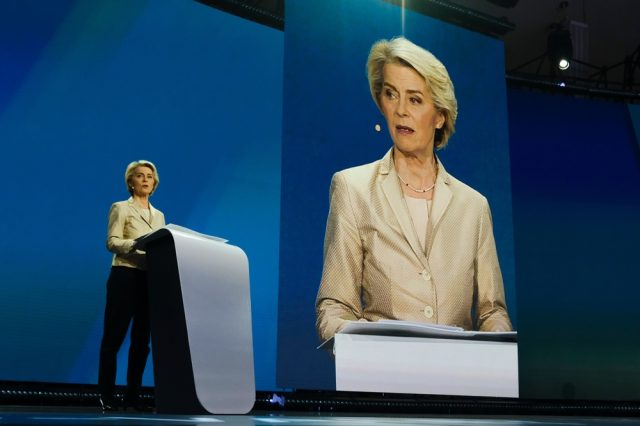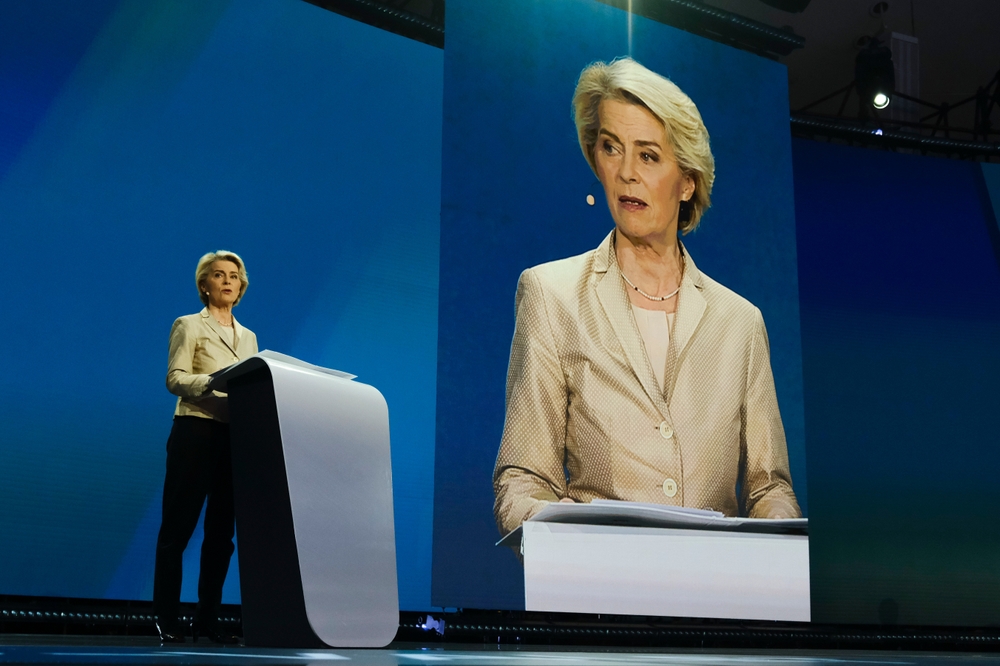
It finally came to pass, as anyone with an average understanding of European politics could have imagined. Von der Leyen was re-elected with the votes of the European People’s Party and most of the European left, plus a very small and, in my opinion, insignificant delegation from the conservative group.
Many supposedly right-wing journalists and radio and television commentators played during the election campaign with the idea that Ursula Von der Leyen could change course and opt for a right-wing front. In reality, they played on right-wing voters throughout Europe. Consciously. Following the slogans of the popular parties in Europe, as happened in Spain.
The so-called right-wing press in Spain (in reality, except for a few exceptions, there is no conservative press in Spain) deceived the voters of the Popular Party by playing on the idea that there would be an alliance between Ursula and the European conservative, reformist or patriotic leaders. The same party swindle was passed on to their dependent media.
However, just a fortnight ago today, Ursula Von der Leyen revealed all her cards. She had concluded a grand investiture agreement between the European People’s Party and the Socialist Party, to which most of the MEPs from the Green and Liberal groups had enthusiastically joined. A large majority, although it is true that as many as 288 MEPs voted against the German. Against the repetition of a Von der Leyen Commission that, more than disappointing, was devastating for a large part of the European middle and popular classes.
The same week that Von der Leyen received the support of the European People’s Party in Spain, it became known that up to 3,000 highly qualified workers will become unemployed as a result of the closure of the Almaraz nuclear power plant. Almaraz is in Extremadura, one of Spain’s historically least industrialised regions. The nuclear power plant is the main source of wealth and prosperity for a vast region. Von der Leyen’s ‘green’ policies – which continue decades of wrong decisions in Brussels – are a disaster.
In Spain, there is a growing awareness that the Partido Popular and the Partido Socialista are a single reality, a kind of single party that shares power in Brussels while making voters in their respective countries believe that they have different policies.
I believe that this key will mark European politics in the next five years. The European electoral cycle begins soon; and the goal of conservative and patriotic parties must remain the same: to break the anti-democratic siege constituted by the new European Socialist People’s Party.
Ursula’s speech in the Strasbourg plenary, before her vote, was a real intellectual insult to the right-wing Members on the bench. And almost a declaration of war against them, and their voters. Not a single concession to the defence of property rights, the impassable protection of borders, the urgency of reducing inefficient spending – especially in the EU itself – and of course no positive mention of political leaders such as Giorgia Meloni or Viktor Orban.
Ursula made a speech as if nothing had happened on 9 June in the European elections. As if the third and fourth groups in the European Parliament were not made up of parties that overwhelmingly reject her climate policies, her immigration policies and her social policies.
He came to say that nothing will change. That there will be more Green Pact – after destroying the agricultural sector he has now set his sights on the industrial sector -; that there will be the same lack of control at the borders and that the promotion of the woke culture in Europe will not diminish. In short, the worst of speeches when Europe is on the verge of collapse.



 Subscribe
Subscribe